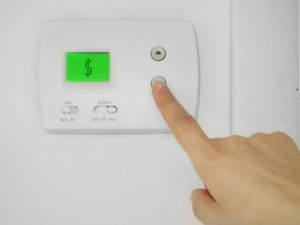The Summer is Coming. Is Your Air Conditioning Prepared?
As a homeowner, you understand the value of preventative maintenance to keep major repairs and major costs at bay.
When it comes to your home’s comfort systems, you need to keep ahead of the season by attending to maintenance before it is needed.
That is why you should spend some time this spring to get your air conditioning ready to go so that you can reliably stay cool all summer long.
Here is a compilation of our best tips to help you get started.
Signs That you Need to Replace Your Air Conditioner
You probably already know that your air conditioner will not last forever, but how do you know when replacement is necessary?
The first clue is your unit’s age. If it is more than 10 years old, there is a good chance that it is on its way out.
Typically, air conditioners only last 10-15 years, tops.
If you experience any of the following, you should look into getting your unit replaced right away, or you may be faced with a broken system this summer:
- strange sounds
- moisture on or around the unit
- foul odors
- rooms that won’t get cool
- low airflow
- inexplicable increases in your energy bills
Schedule Your Inspection
To ensure that your system is in top working order, schedule an inspection every year, preferably in the spring.
This is because the temperature is mild enough to make sure that everything is working, but you will have time to tend to issues before the soaring heat of summer arrives in full force.
There are a number of benefits to an annual inspection.
You save money on your energy bills because your air conditioner will be clean and working efficiently.
You save money because your unit’s lifespan will be extended with maintenance.
You also get peace of mind because you know that your system is in great shape for the coming season.
Appropriate Thermostat Settings
It may sound a little high, but if you can leave your thermostat around 78 °F, that will create an energy efficient environment for your air conditioner.
 To reduce room temperature more, run fans in your rooms and close the curtains during the day to keep the sun out.
To reduce room temperature more, run fans in your rooms and close the curtains during the day to keep the sun out.
If it cools down enough at night, turn the A/C off and open the windows for cooling by Mother Nature.
These low-tech tricks will reduce your indoor heat substantially.












